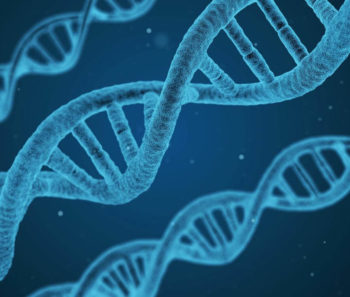A recent study performed by RMIT University has put forward an interesting link between stress and infertility in humans. They have performed a large review of both animal and human studies to find a link between the gut hormone Ghrelin and infertility. Studying the effects of stress is actually quite difficult due to the vast number of different symptoms and stimuli, often the way stress is experienced is individual and thus very hard to quantify.
The abstract from the study points to the link between Ghrelin and infertility via “evidence from recent seminal studies demonstrating that ghrelin has a principal role in the stress response and reward processing, as well as in regulating reproductive function, and that these roles are tightly interlinked.”
This hypothesis proposes that when we are under stress the digestive hormone Ghrelin is dysregulated, which has a flow on effect to reducing fertility by affecting other hormones. We all now how stressful trying to fall pregnant can be, along with the added pressure involved with the IVF process.
Acupuncture is a well known form of stress reduction, and as written about on the the fertility page on my site, has been shown to improve the quality of life of women undergoing IVF.
From a Traditional Chinese Medicine (TCM) perspective, it is a very interesting hypothesis that a gut hormone plays a key role in fertility. In TCM theory your digestion is a key factor in fertility, due to its central role as the Earth element (it allows the other elements to communicate with each other), as well as being the source of our post-natal essence. It’s job in simple terms is to go back and keep our Kidney Essence strong to support our long term health and fertility.
Here is a copy of the full abstract from the journal article:
Infertility affects a remarkable one in four couples in developing countries. Psychological stress is a ubiquitous facet of life, and although stress affects us all at some point, prolonged or unmanageable stress may become harmful for some individuals, negatively impacting on their health, including fertility. For instance, women who struggle to conceive are twice as likely to suffer from emotional distress than fertile women. Assisted reproductive technology treatments place an additional physical, emotional, and financial burden of stress, particularly on women, who are often exposed to invasive techniques associated with treatment. Stress-reduction interventions can reduce negative affect and in some cases to improve in vitro fertilization outcomes. Although it has been well-established that stress negatively affects fertility in animal models, human research remains inconsistent due to individual differences and methodological flaws. Attempts to isolate single causal links between stress and infertility have not yet been successful due to their multifaceted etiologies. In this review, we will discuss the current literature in the field of stress-induced reproductive dysfunction based on animal and human models, and introduce a recently unexplored link between stress and infertility, the gut-derived hormone, ghrelin. We also present evidence from recent seminal studies demonstrating that ghrelin has a principal role in the stress response and reward processing, as well as in regulating reproductive function, and that these roles are tightly interlinked. Collectively, these data support the hypothesis that stress may negatively impact upon fertility at least in part by stimulating a dysregulation in ghrelin signaling.
– Endocrine Reviews, Volume 38, Issue 5, 1 October 2017, Pages 432–467


